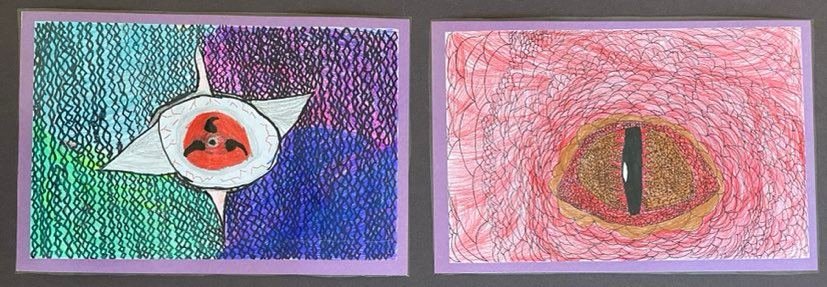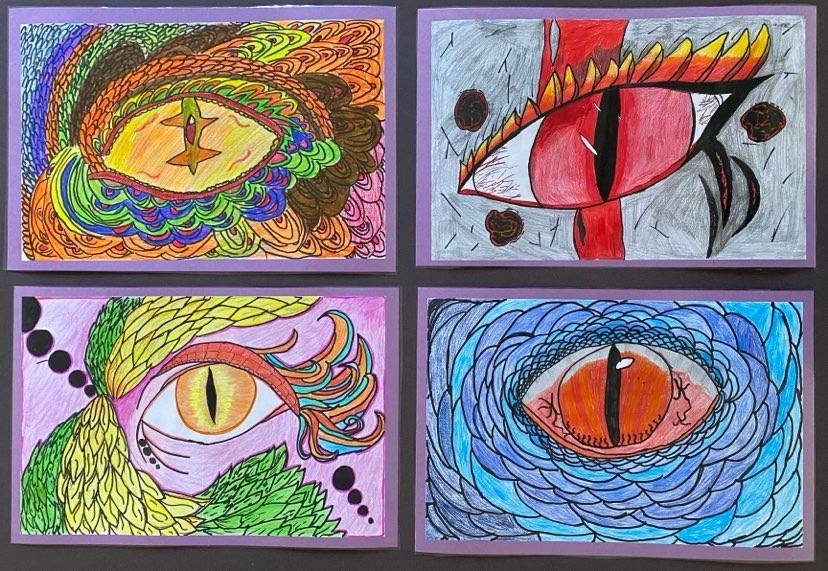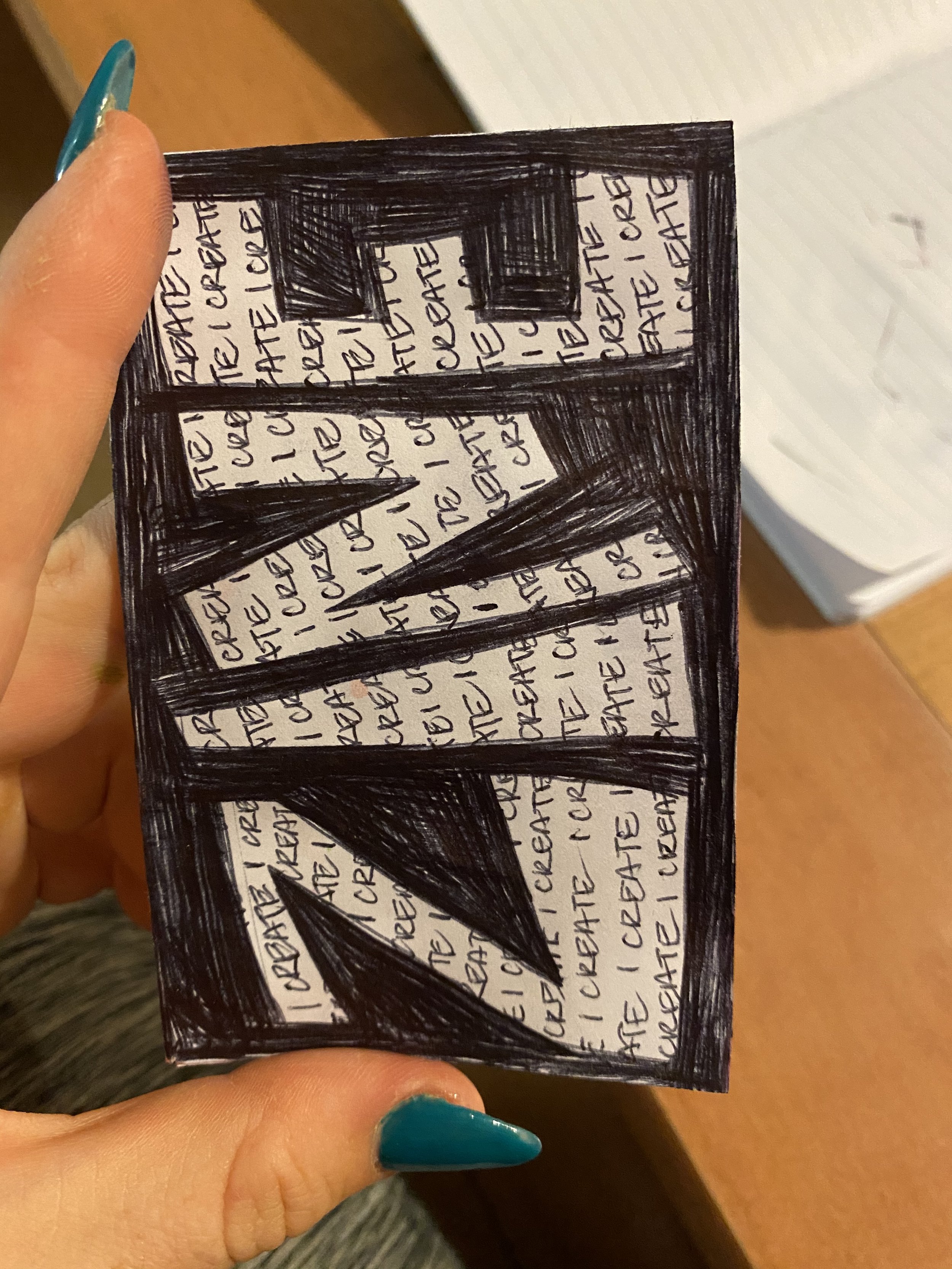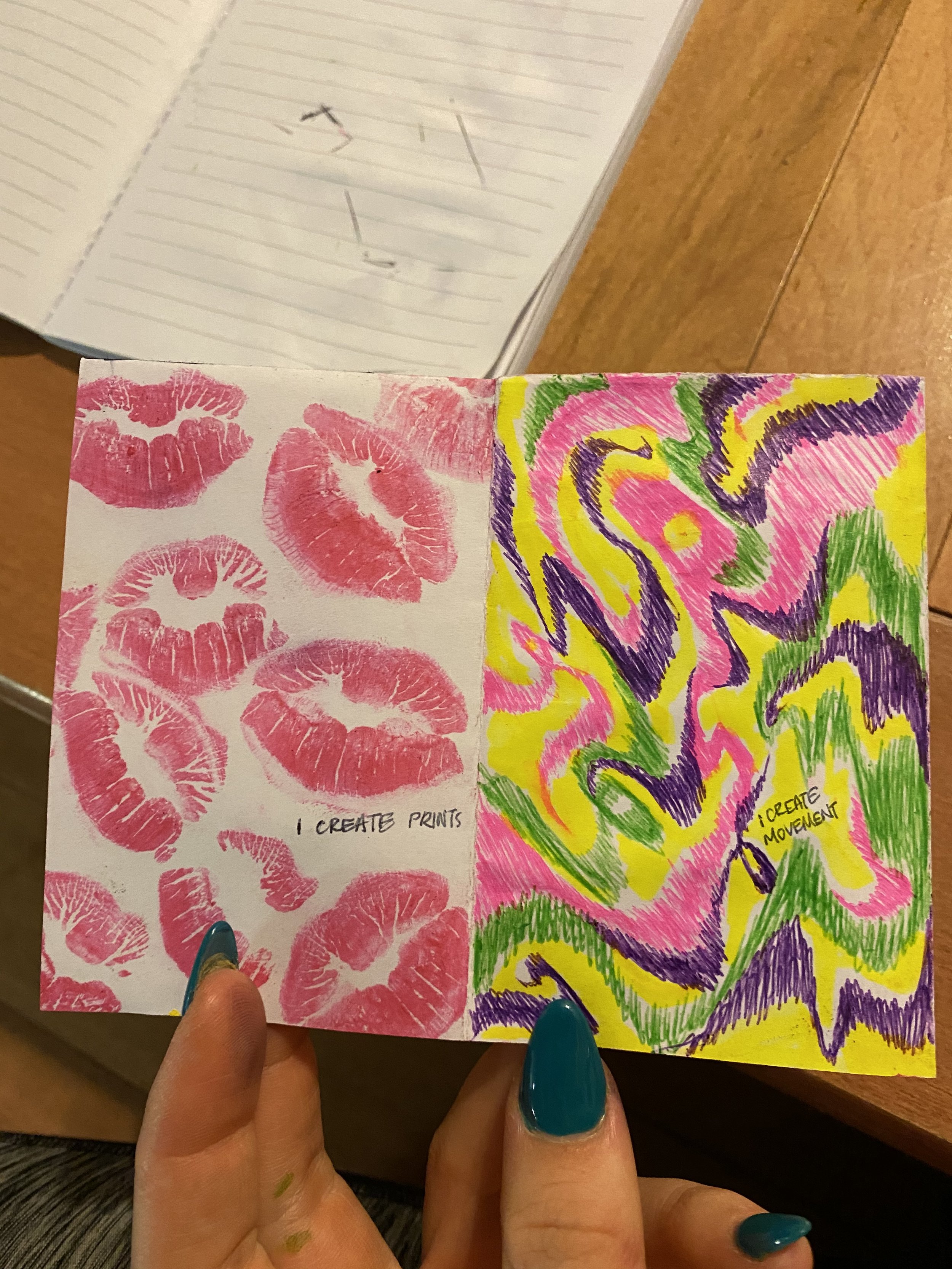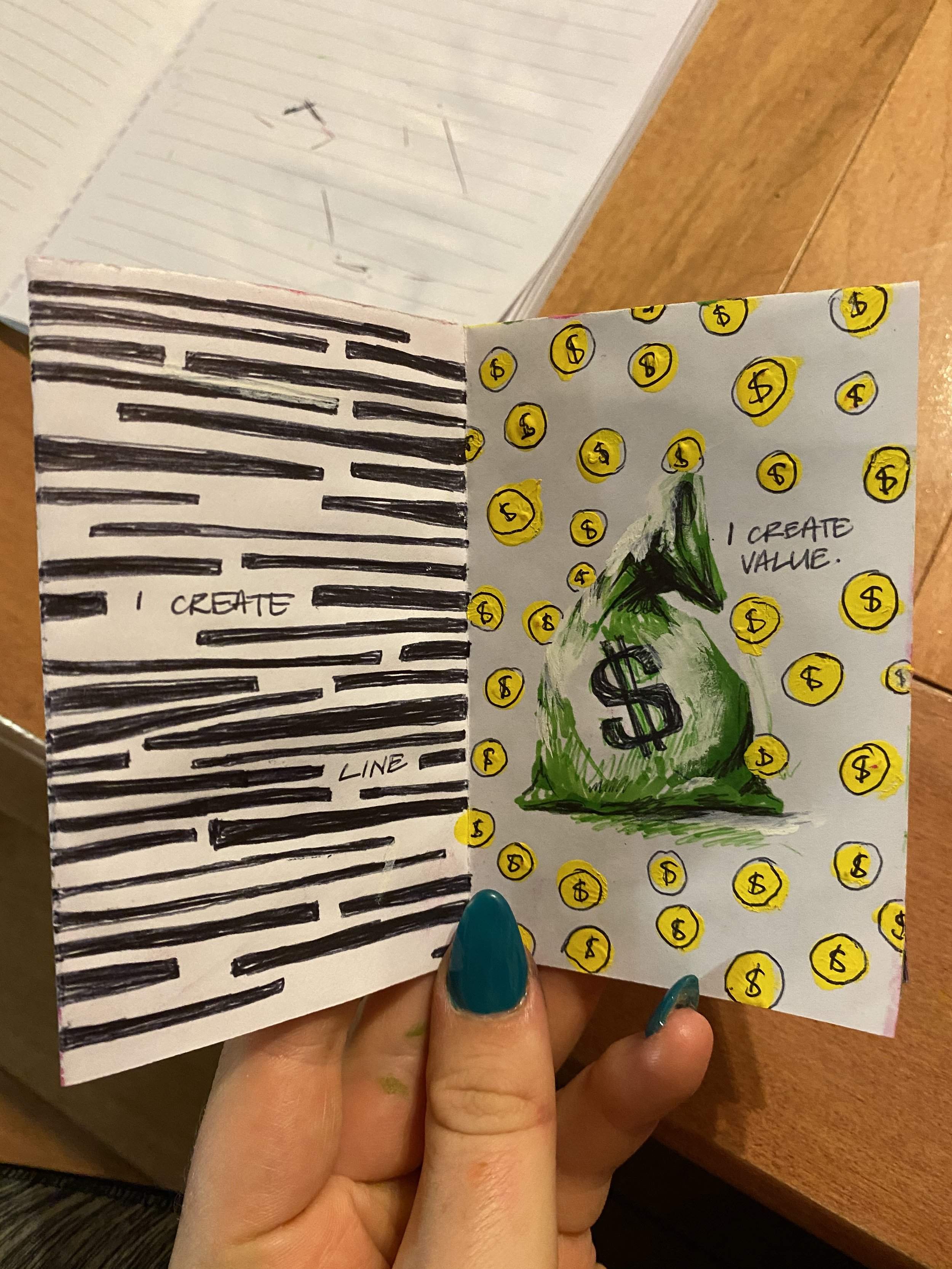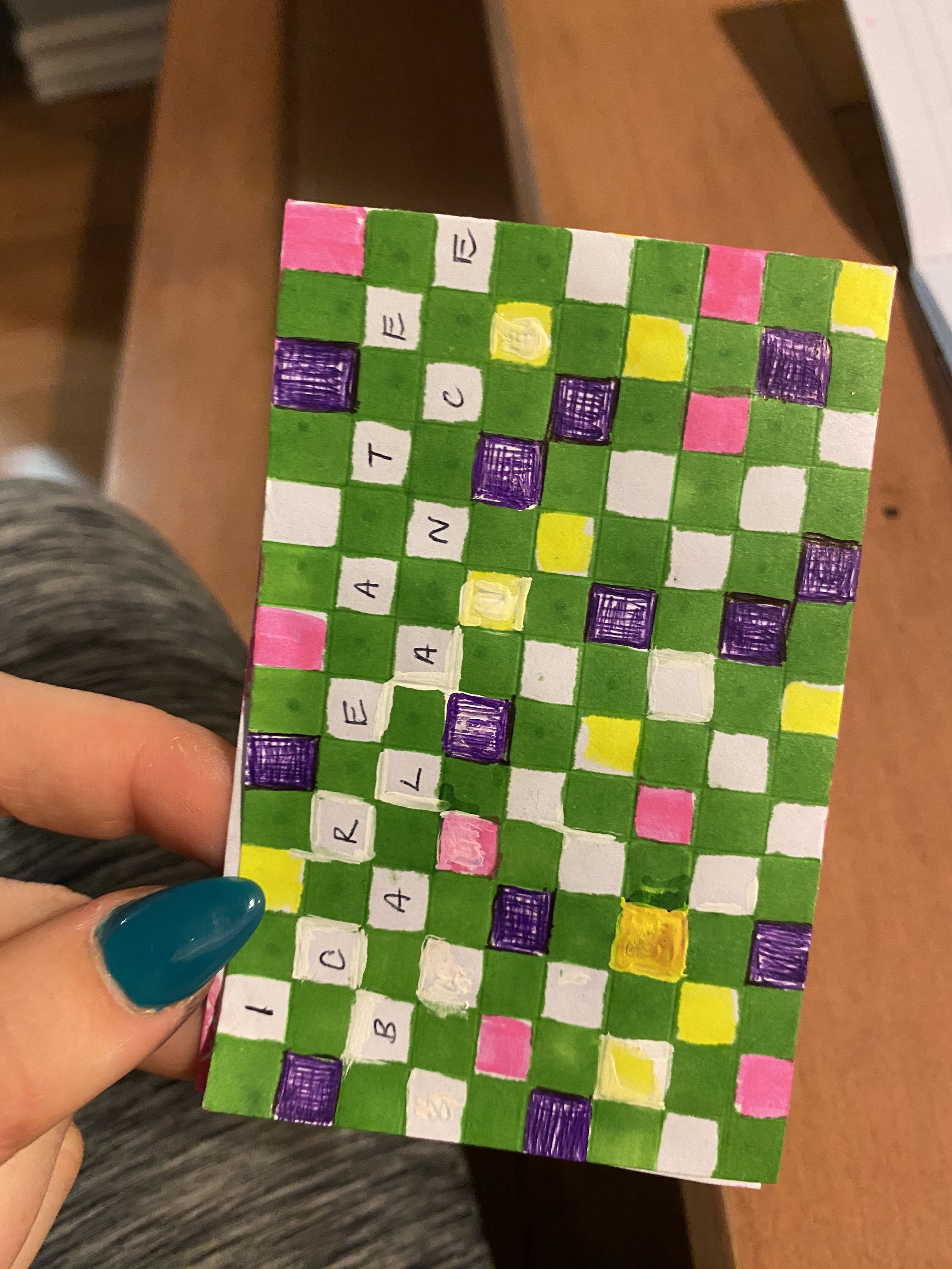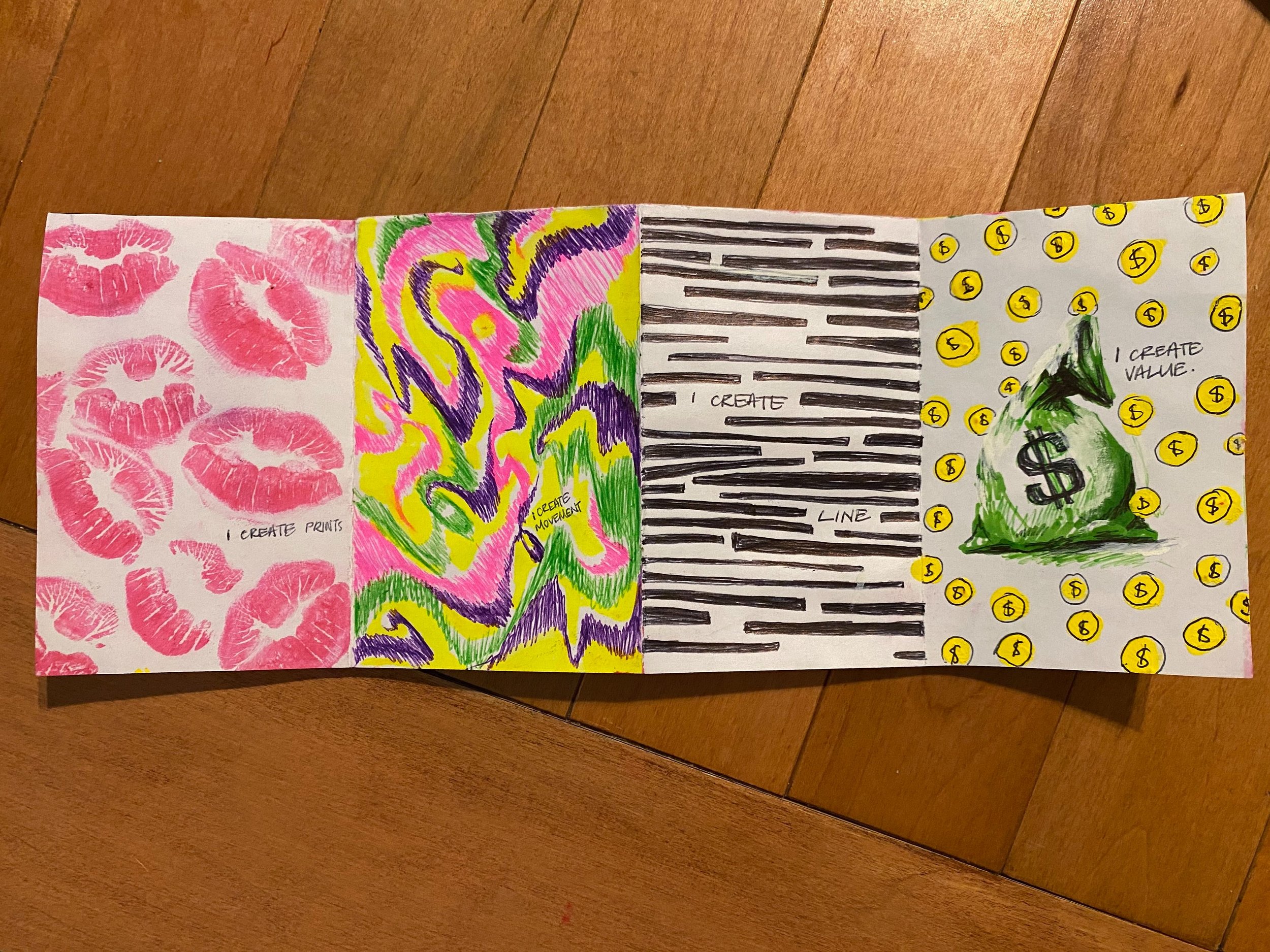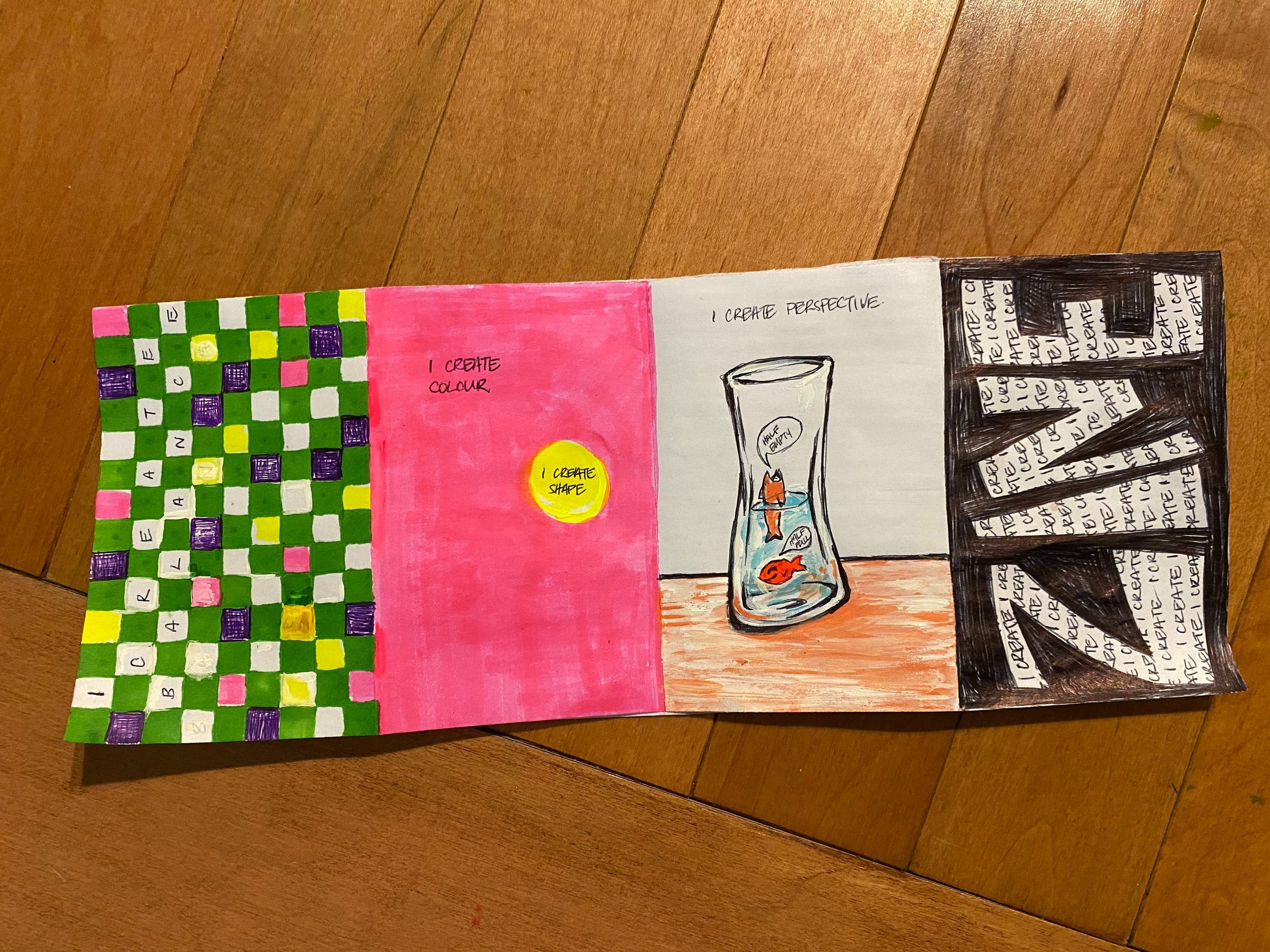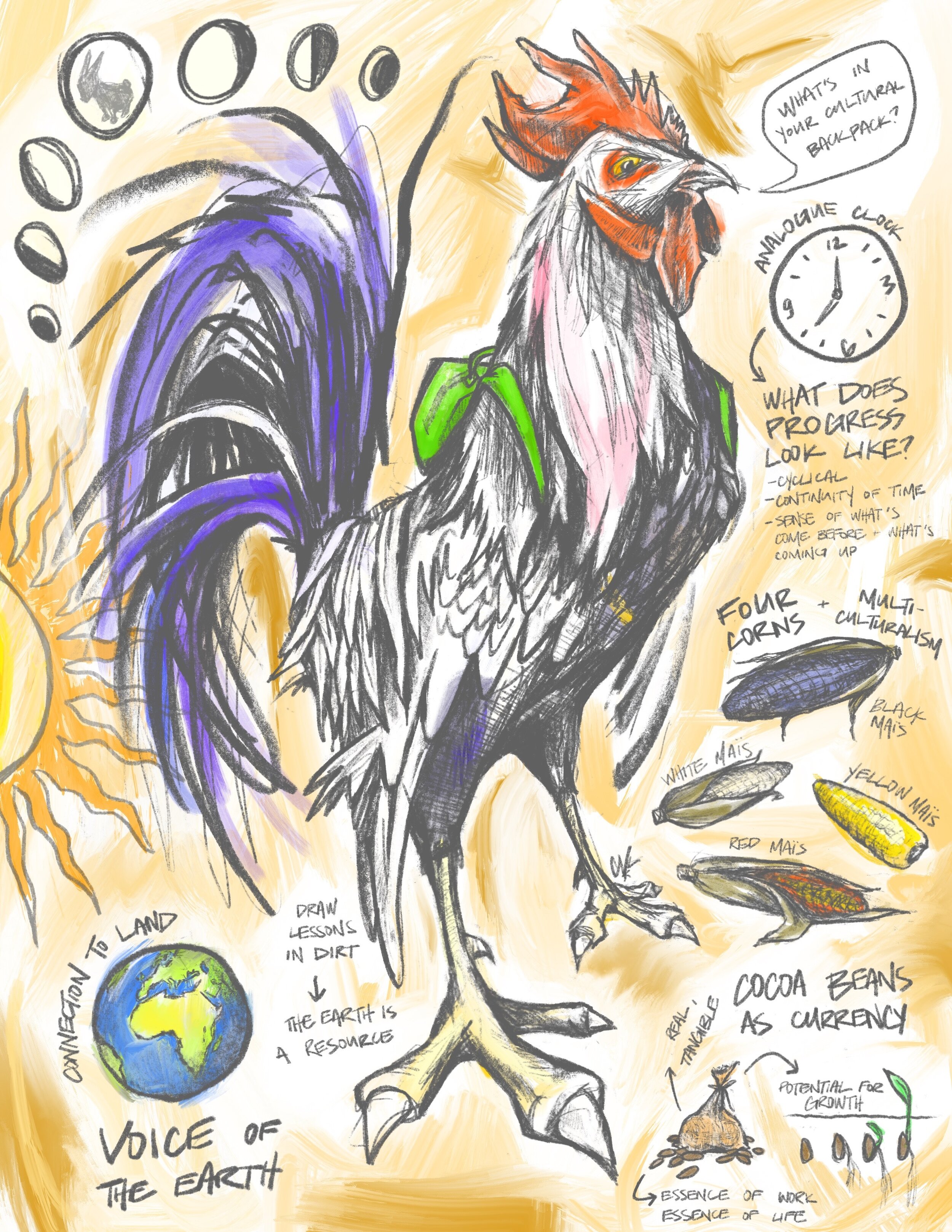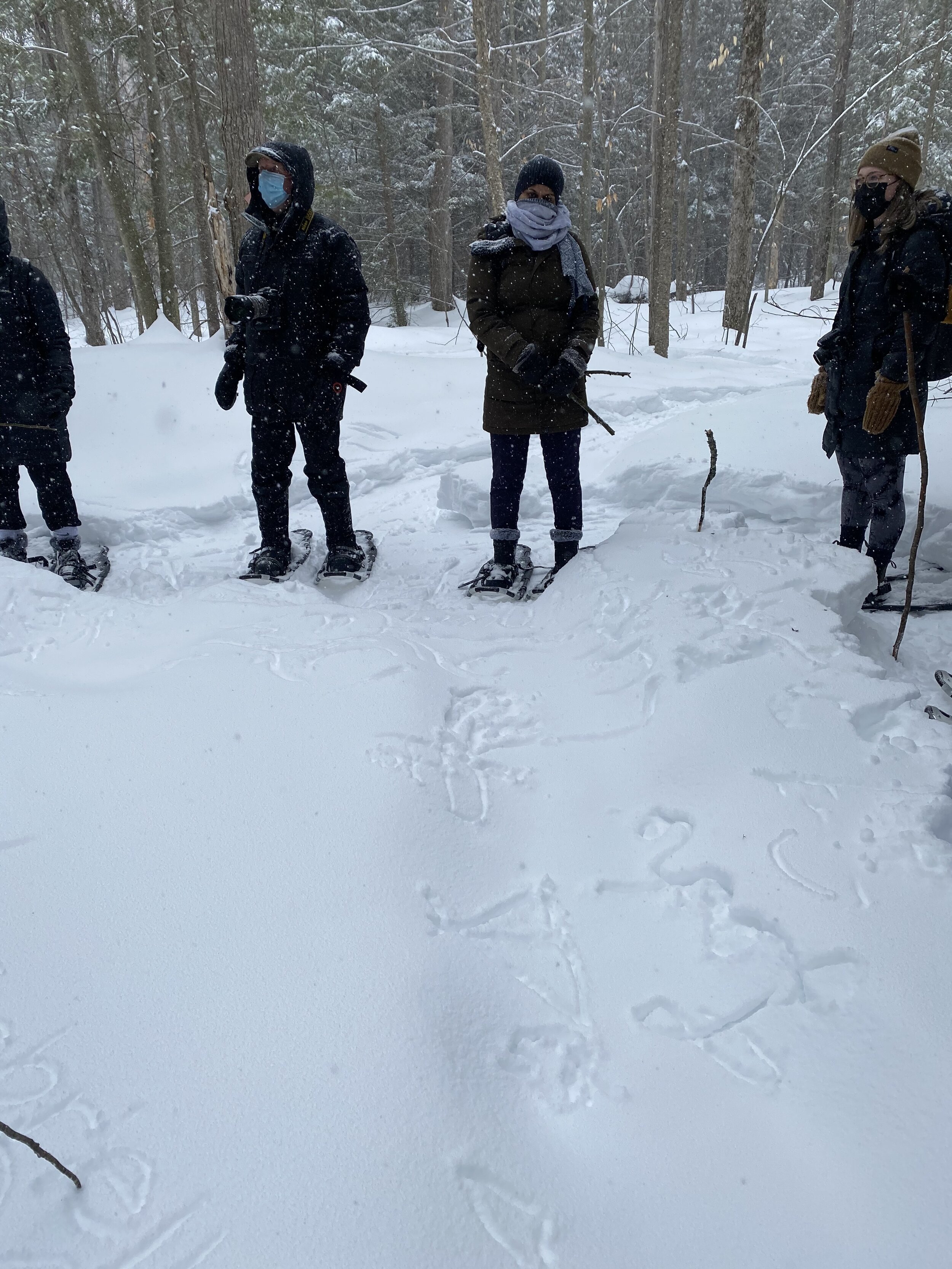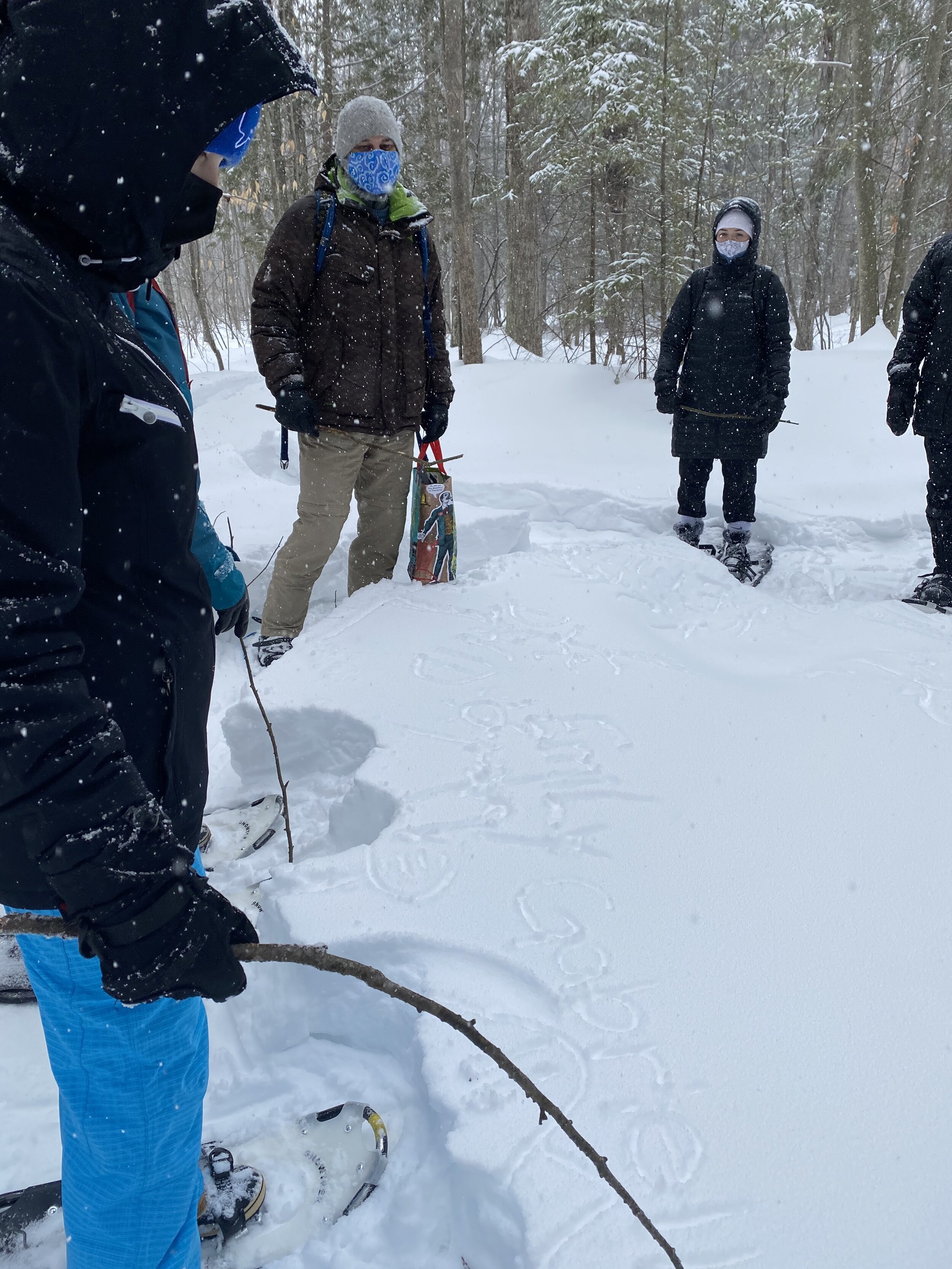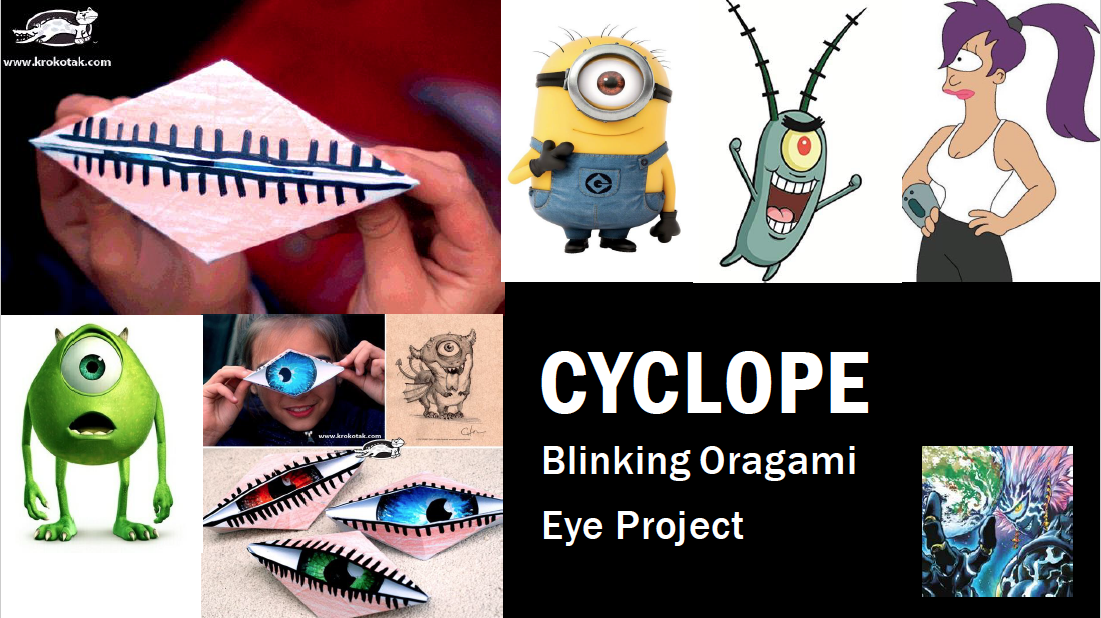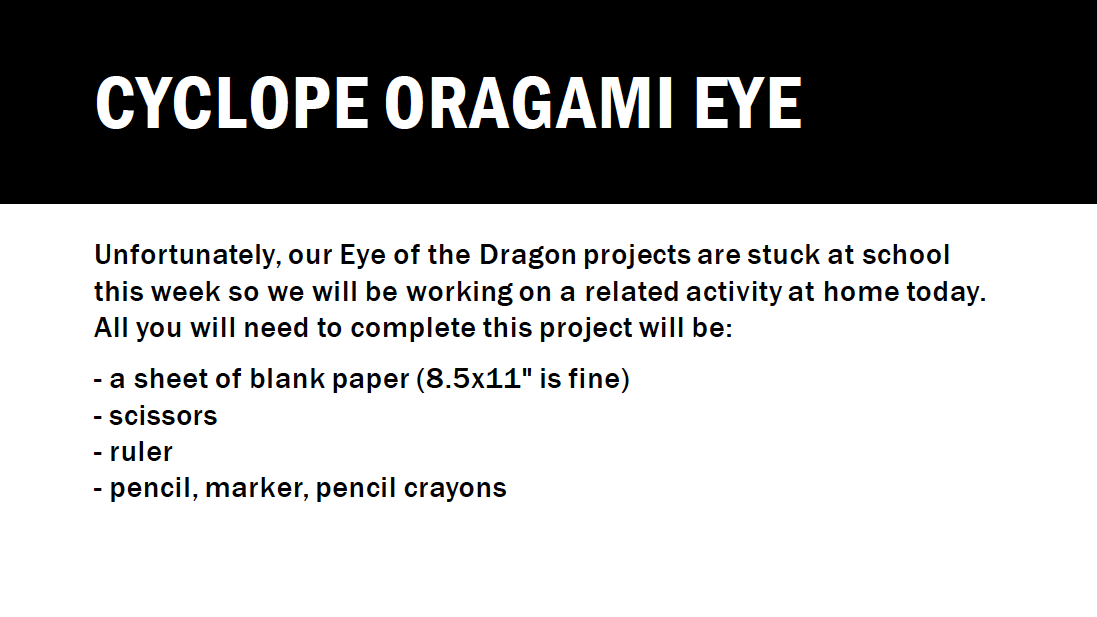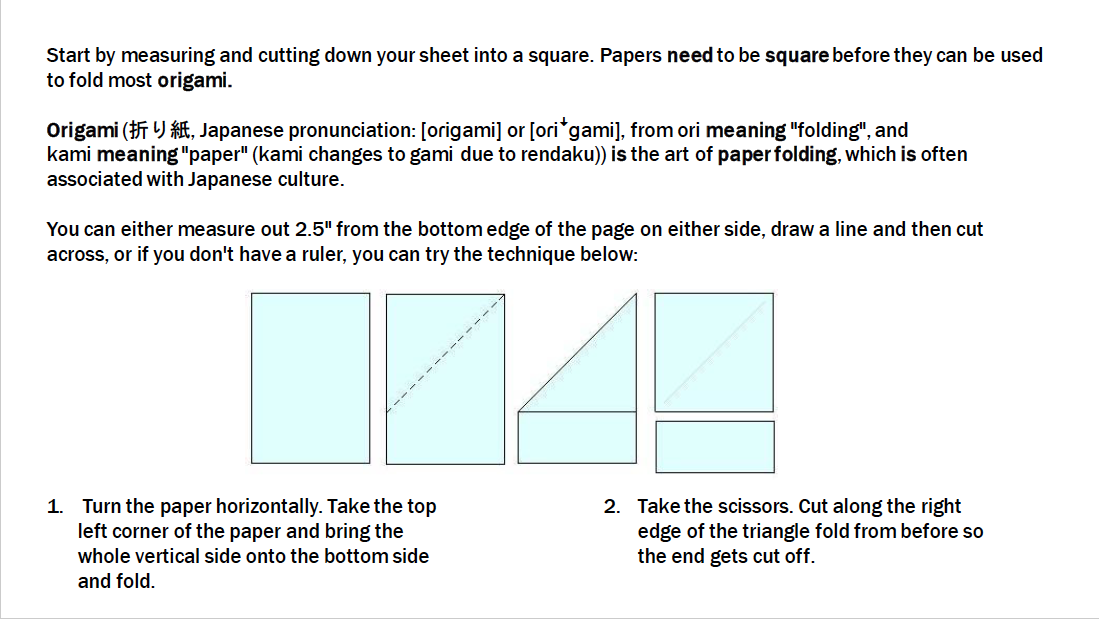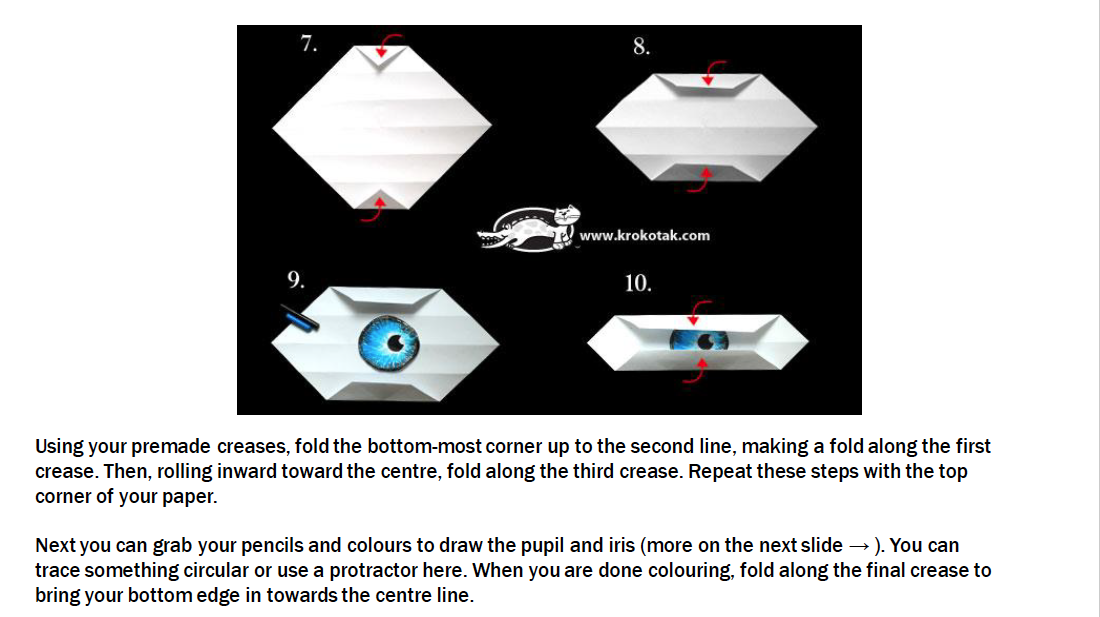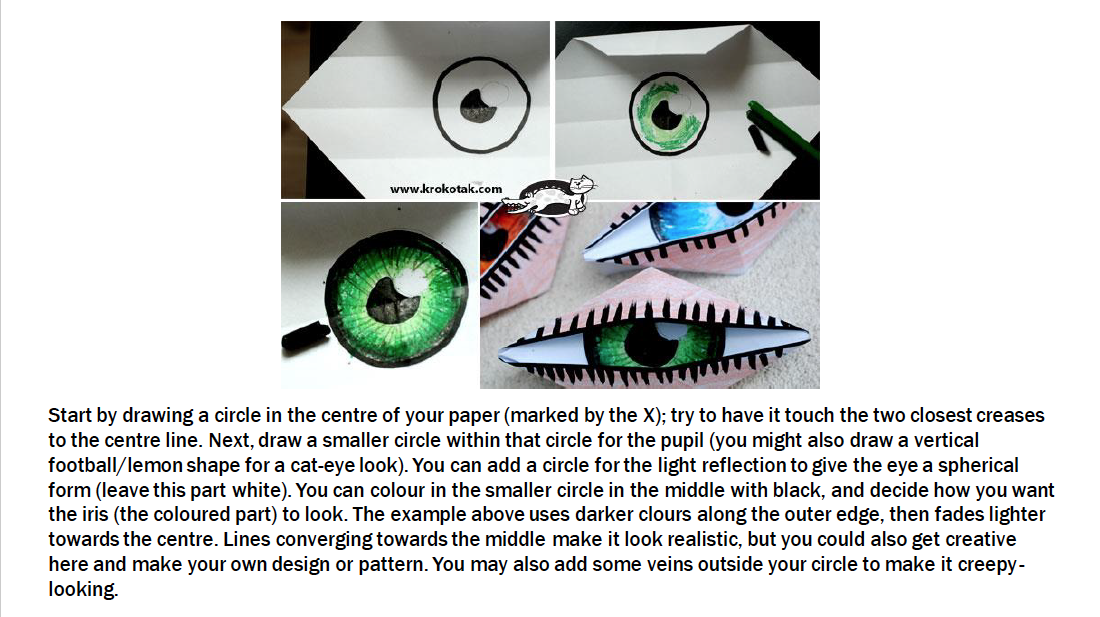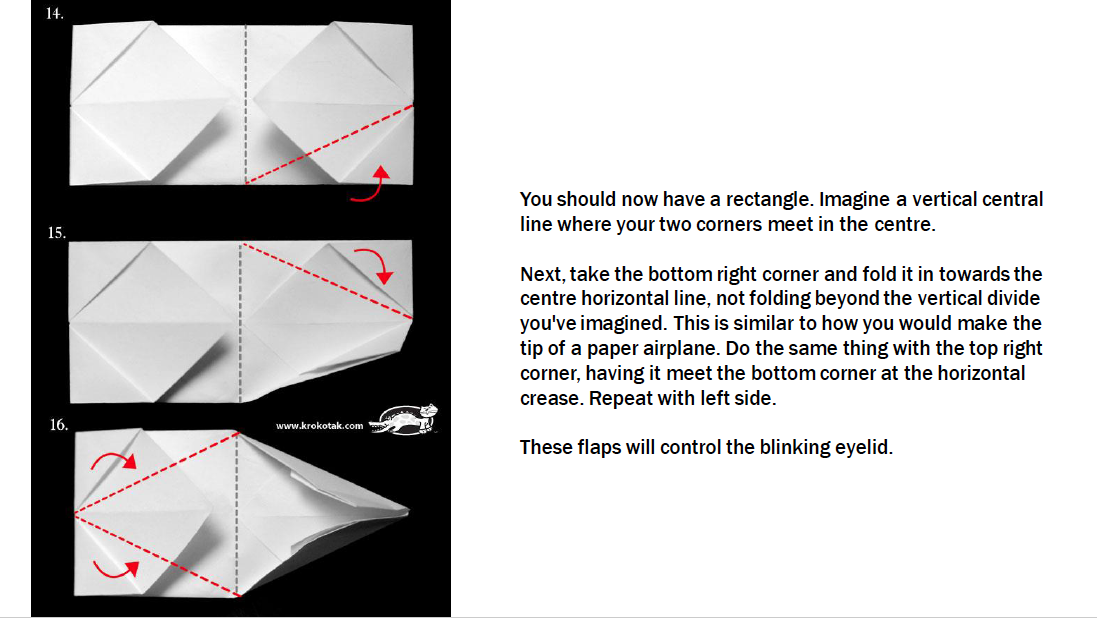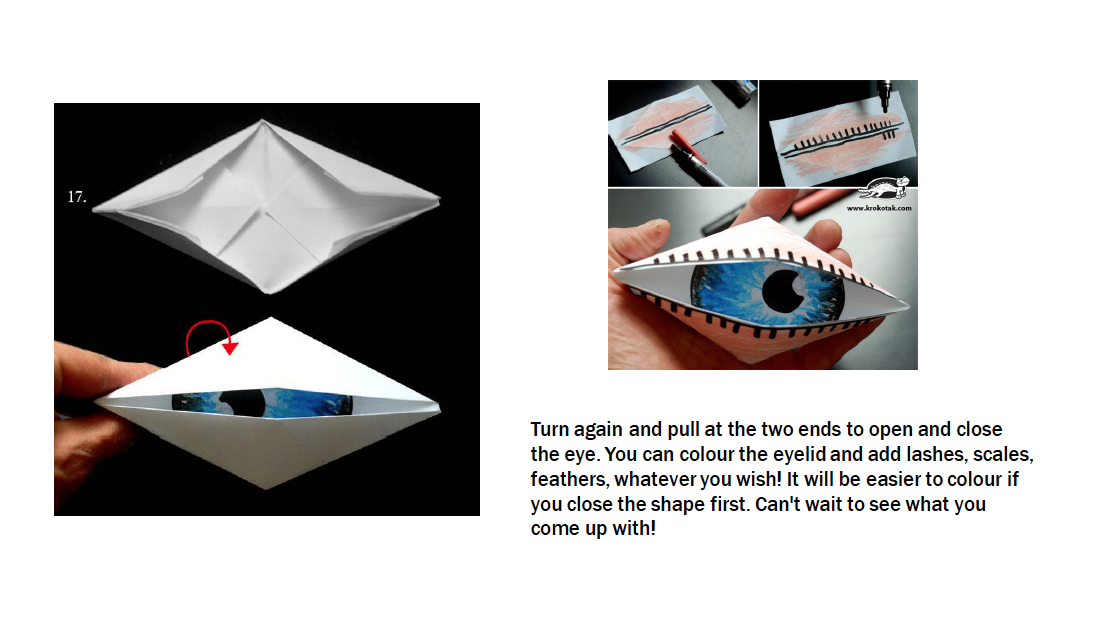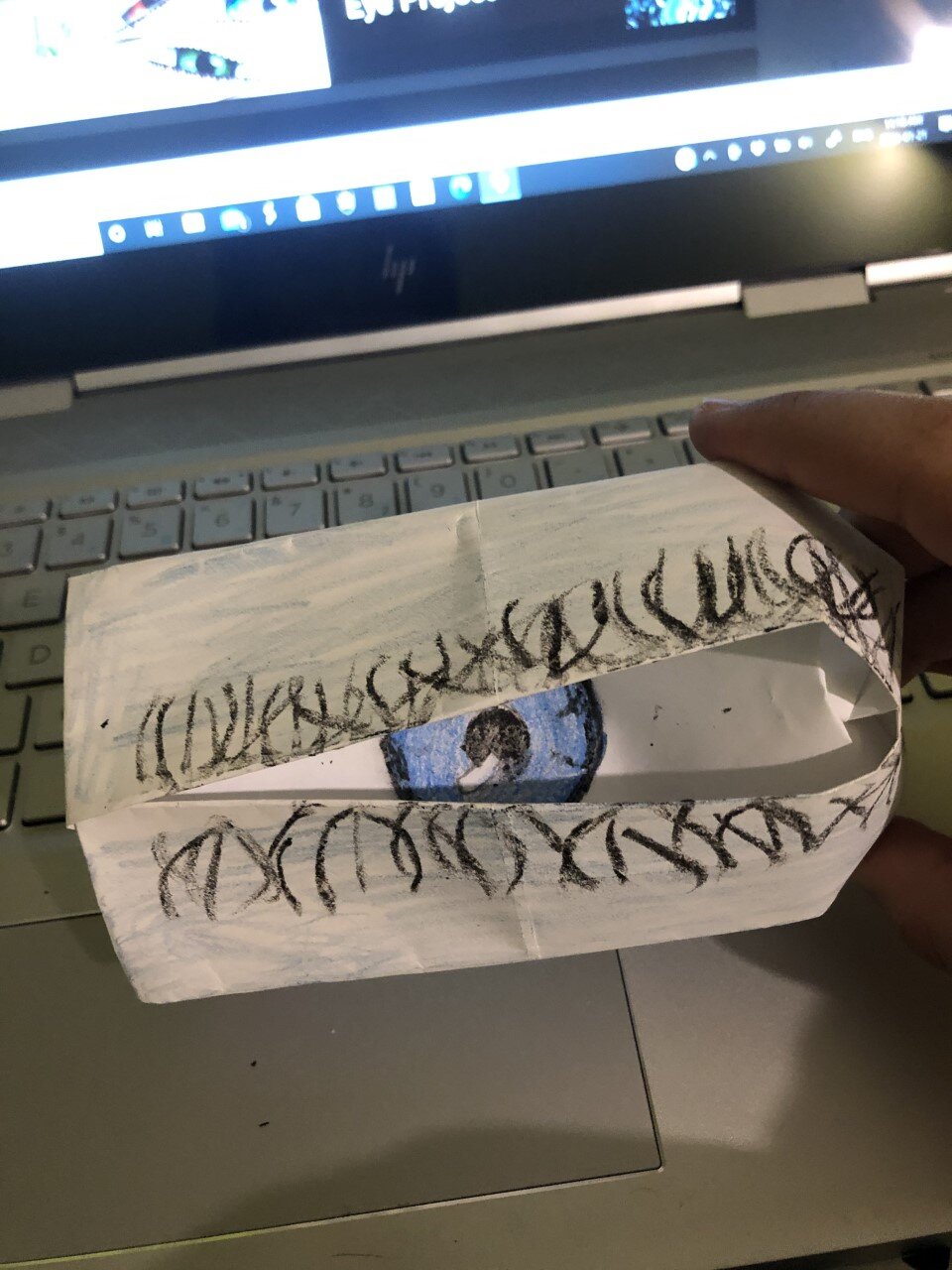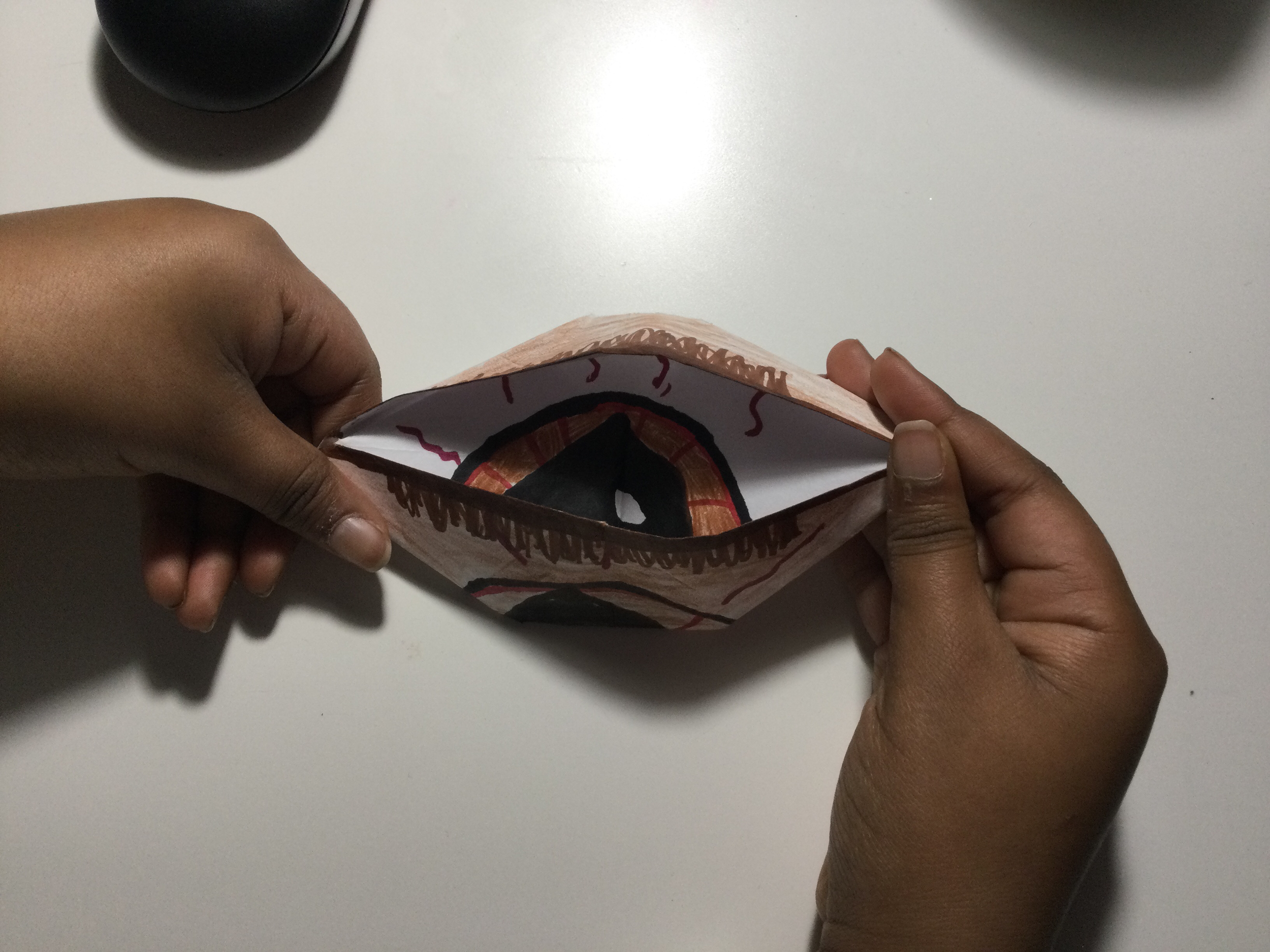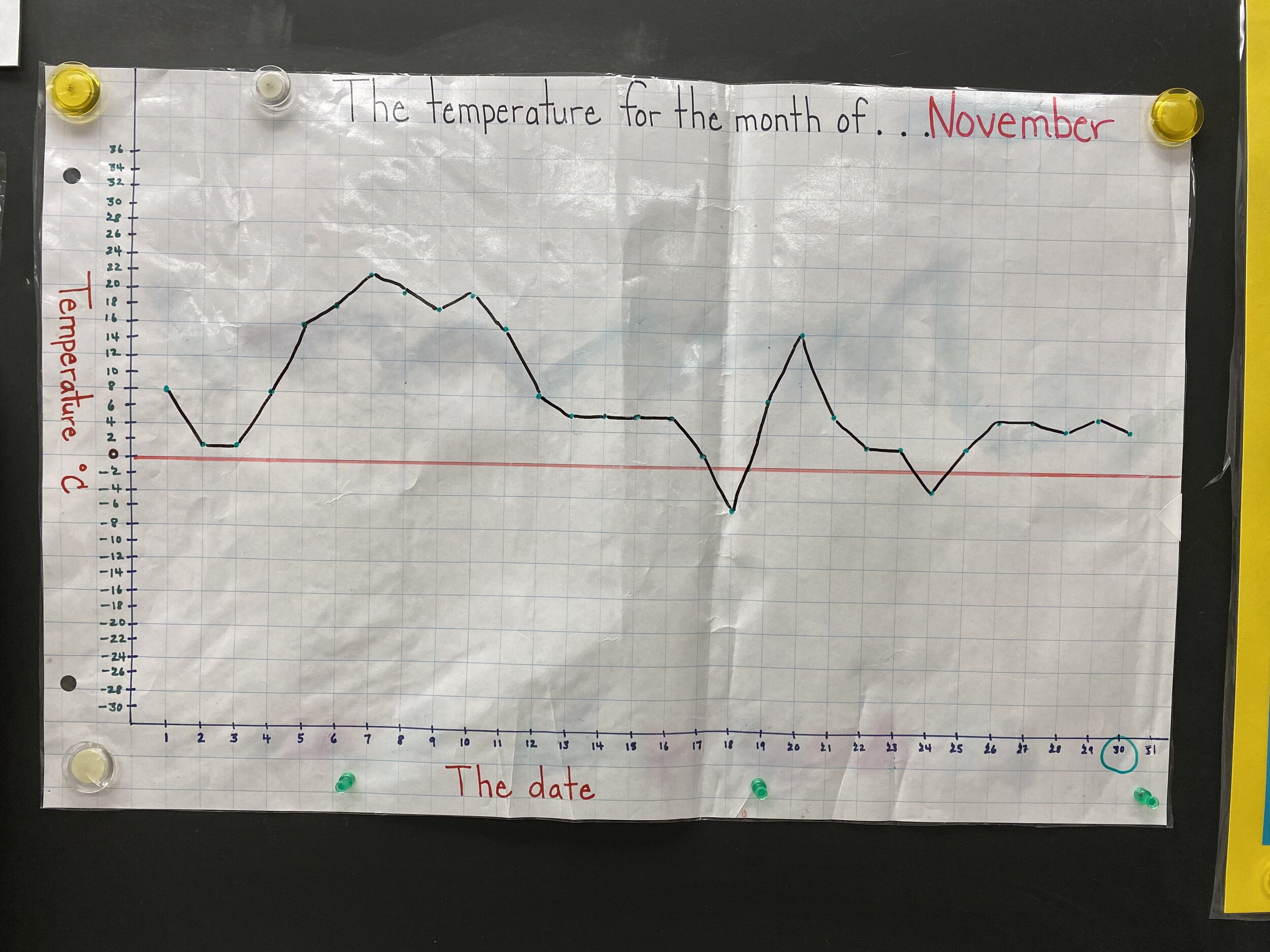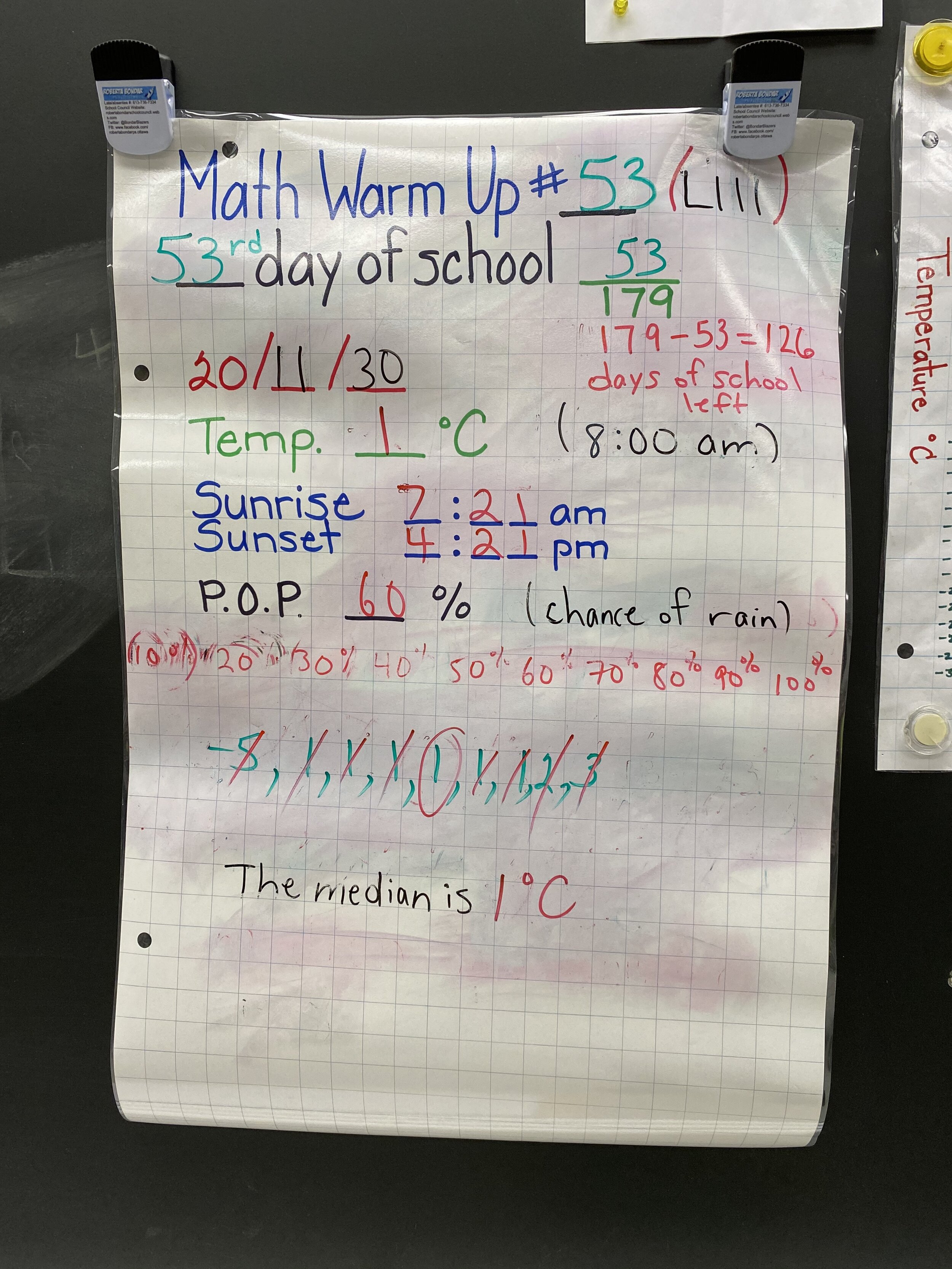Having differed my practicum for year two, I was unsure of what I could contribute to a blog post to be written under the guiding topic of “Teacher as Researcher.” When I think about a researcher, my mind is drawn to an image of an individual working directly in the field, making live observations, probing questions, investigating and analyzing data, and making meaningful connections to real-life situations. But here I am, another semester in a global pandemic, reading PDF page after page, hypothesizing made-up case studies behind the safety of my computer screen. I struggled in teacher's college a lot last year, never having participated in a fully academic post-secondary program. All the reading and reflecting felt overwhelming and I had trouble meeting deadlines, motivation and prioritizing assignments. I struggled a lot with my identity and choice to come into this program at the time, was I trying to fit a square into a circle? I’m an artist, not a teacher! How will I tackle all these curriculum expectations and edujargon? Do I even believe in traditional schools and stuffy report cards? I just want to paint pretty things, I don’t know how to sit at a computer and write, I can barely make it through reading more than a couple of paragraphs before disengaging and falling asleep… Thankfully my professors and instructors at OttawaU were empathetic and kind as long as I was forthcoming and communicated my academic struggles. By mid-October, I had moved from Toronto to Ottawa to be placed in one of the Ottawa Carleton District Schools, only to have the observation block of our practicum in November canceled. We had a solid three-week block scheduled in December, which we almost made it out of, though my grade 5 class came into contact with a student with COVID-19, and unfortunately had to stay home to isolate for the final three days before winter break. Despite this, I came alive in this time. I was reminded how much I loved teaching and being with people and this awesome age group. I hated teacher's college, but I loved teaching; there was a light at the end of this tunnel.
The rest of my year one practicum was rocky. Government-mandated stay-at-home orders and extended breaks complicated things, but I still felt like I had a connection with my students, even over the screen. I had some fairly successful lessons over Google Classroom, and felt like that platform gave me a little more organization. A lot of the units I introduced in class felt like I was flying by the seat of my pants, and staying up late figuring out my lesson for the next day. I felt like a chicken with my head cut off, and my Associate Teacher assured me that’s how teaching is - that most teachers just had a few jot notes written out as lesson plans. I wasn’t implementing practices I had learned in teachers' college, like posting and addressing learning goals and intentions before lessons, or handing out rubrics/grading criteria with assignments. Even if lessons were successful, I knew I wasn’t planning them by looking at curriculum documents. Looking back on these things now, I feel ashamed and as if I've done those students wrong.
We've learned a lot this semester about assessment practices and assessment for, as, and of learning. Though we talked about these things in year one, I feel like these words carry much more significance and weight for me now. I sincerely hope to do as little harm as possible as a future teacher. One of my professors last year had claimed this as her teaching mantra during one of our sessions and those words resonated so much for me. While I am not in the thick of it this semester, and miss being right in the action, I've found my learning deepening and becoming much more meaningful through personal connection with content.
While I still sometimes feel overwhelmed with the "paperwork" side of the profession I'm entering - curriculum documents, IEPs, lesson plans, curriculum maps, and the like, I have grown an appreciation for their necessity. I remember a moment during my practicum last year, a few minutes after the bell had gone and there was a boy on his knees on the ground still collecting all his papers and books and getting on his jacket, while all of his classmates had long gone. As my Associate Teacher and I were patiently waiting, knowingly sort of shaking our heads, I turned to her and said "I had a soft spot for him because that was like me as a kid - papers flying out of my backpack in every direction, juice boxes exploding in my bag, always leaving one mitten behind... I would often show up to picture day with unbrushed hair and wearing a sloppy jogging suit because the form never made it home to my parents." She was surprised and questioned me, saying she couldn't believe that about me.
When I moved back to the Toronto area this year (hence the deferred practicum) and back in with my parents, my mother showed me a bunch of my report cards from elementary and high school, thinking I'd be even more curious about them now that I was going to be a teacher. Going through them brought up a bunch of negative feelings and I ended up skipping straight to my grades in visual art, barely skimming through the rest. I wasn't a stellar student in general and didn't even achieve very high grades in something I think I'm pretty damn good at, going on to complete a Bachelor of Fine Arts, as well as a Bachelor of Applied Arts in Illustration. This basically just underscored and solidified my opinion on how traditional schooling and grading doesn't say anything about who you are and what you're capable of. One thing I had noticed while skimming was that I repeatedly got the "doesn't speak up in class" comment.
Three weeks ago, I was diagnosed with adult ADHD and have begun stimulant medication to help me regain control. I have been curious about this for a while and brought up my personal concerns to different medical professionals at different stages, often being dismissed when I was younger as depression or anxiety, and more recently as sleep apnea or simply that "a lot of people are experiencing these symptoms during COVID; you should try to meditate!" I encourage anyone experiencing symptoms you are curious about to seek advice from different medical professionals, until you find the answers that you are looking for. You know your body best. From my research, I've learned that females are often misdiagnosed or will not get a diagnosis until later in life. As stated previously, I have never participated in a fully academic post-secondary program and had only started to experience difficulties when I came to teacher's college. I was able to exhibit hyper-focus in hands-on activities like art-making and tended to gravitate towards socially engaging, active jobs on my feet, knowing I would frequently fall asleep at cubicle desk jobs in my early twenties. I have engineered my life in such a way to avoid the things that make me feel inadequate - i.e. not working to my fullest potential. Women have a tendency to exhibit inattentive ADHD, which makes it hard to focus, pay attention to details, stay organized, listen, and remember things. [1] Some of the characteristics of inattentive ADHD, such as being shy or impulsive, are often viewed as personality traits rather than symptoms. [2] The Centers for Disease Control and Prevention (CDC) reports that boys are more likely to be diagnosed with ADHD than girls (12.9% vs. 5.6%). [3] However, research suggests that this disparity is not because boys are more susceptible but instead because girls are consistently underdiagnosed. [2]
Psychological distress, feelings of inadequacy, low self-esteem, and chronic stress are common. Often, women with ADHD feel that their lives are out of control or in chaos, and daily tasks may seem impossibly huge. Our culture commonly expects women to fill the caretaker role. When things feel out of control and it's difficult to organize and plan because of ADHD, taking care of others can feel nearly impossible. This societal pressure also may greatly increase a woman's feelings of inadequacy. [4] Since receiving my diagnosis and starting medication, I have felt more in control of my life in the past three weeks than I have in years. While I do experience feelings of depression and anxiety, they never felt like the route of the problem, and being told I have adult ADHD symptoms instead, had been an entirely validating experience for my identity.
Though my own sense of self, physical and mental well-being, and identity are all important to this story, I ultimately end up bringing these ideas back to my teaching practice. I think about the child after the bell with his disorganized desk and school bag; I think about a quirky artsy girl in my grade 4 group who was constantly late to school in the morning, struggling with her self-confidence as she was beginning medication for her ADHD; I think about how assessment and report cards can bring about such horrible feelings, and how there are sometimes hidden messages in the commentary. While I can't say exactly what this all means at this point, I know receiving my diagnosis has made me a much more empathetic teacher to experiences of students who might be struggling with the same things I was struggling with in grade school and continue to in adulthood. I am catching up with unfinished projects and deadlines long-passed at the moment, and I'm not in a practicum school with those students yet, but I know how much better I will be able to show up for them in the spring. I realize the importance of being prepared for them and planning. Being adaptive and moving beyond my plans, turning them into living documents will also be important, but this is where my empathy superpower comes in. I am excited to greet my future students with this deepened understanding and learning under my belt.
1. Quinn PO, Madhoo M. A review of attention-deficit/hyperactivity disorder in women and girls: Uncovering this hidden diagnosis. Prim Care Companion CNS Disord. 2014;16(3). doi:10.4088/PCC.13r01596
2. Skogli EW, Teicher MH, Andersen PN, Hovik KT, Øie M. ADHD in girls and boys – Gender differences in co-existing symptoms and executive function measures. BMC Psychiatry. 2013;13(1):298. doi:10.1186/1471-244X-13-298
3. Centers for Disease Control and Prevention. Attention-deficit/hyperactivity disorder (ADHD). Reviewed November 16, 2020.
4. Low, K. ADHD in Women: How ADHD Symptoms Commonly Present in Women. Very Well Mind. October 22, 2021.






![[Template] Onomatopoeia Art.jpg](https://images.squarespace-cdn.com/content/v1/5883fc471b10e356f5328c1e/1648677583988-BL17M2BWRZNSA98Y3NDV/%5BTemplate%5D+Onomatopoeia+Art.jpg)
![[Template] Onomatopoeia Art-2.jpg](https://images.squarespace-cdn.com/content/v1/5883fc471b10e356f5328c1e/1648677583559-X3L7UHYJC45H6EQUP24N/%5BTemplate%5D+Onomatopoeia+Art-2.jpg)
![[Template] Onomatopoeia Art-3.jpg](https://images.squarespace-cdn.com/content/v1/5883fc471b10e356f5328c1e/1648677583450-72CG3H48AJ33E01G7IH7/%5BTemplate%5D+Onomatopoeia+Art-3.jpg)
![[Template] Onomatopoeia Art-4.jpg](https://images.squarespace-cdn.com/content/v1/5883fc471b10e356f5328c1e/1648677582987-GJ5WKCUF4BGQ0WGIH1IU/%5BTemplate%5D+Onomatopoeia+Art-4.jpg)
![[Template] Onomatopoeia Art-6.jpg](https://images.squarespace-cdn.com/content/v1/5883fc471b10e356f5328c1e/1648677582281-TRFV9JGXZ6PUJZO455LQ/%5BTemplate%5D+Onomatopoeia+Art-6.jpg)
![[Template] Onomatopoeia Art-7.jpg](https://images.squarespace-cdn.com/content/v1/5883fc471b10e356f5328c1e/1648677581996-GJD6634XOD3T9E3LFTU8/%5BTemplate%5D+Onomatopoeia+Art-7.jpg)
![[Template] Onomatopoeia Art-8.jpg](https://images.squarespace-cdn.com/content/v1/5883fc471b10e356f5328c1e/1648677581545-RMX898H4ZDAUF3CINPPJ/%5BTemplate%5D+Onomatopoeia+Art-8.jpg)
![[Template] Onomatopoeia Art-9.jpg](https://images.squarespace-cdn.com/content/v1/5883fc471b10e356f5328c1e/1648677581208-NCEF1VB5LAKXGXVS7YE2/%5BTemplate%5D+Onomatopoeia+Art-9.jpg)
![[Template] Onomatopoeia Art-10.jpg](https://images.squarespace-cdn.com/content/v1/5883fc471b10e356f5328c1e/1648677580942-PUPGJ622AMV8C42AZ8J3/%5BTemplate%5D+Onomatopoeia+Art-10.jpg)
![[Template] Onomatopoeia Art-11.jpg](https://images.squarespace-cdn.com/content/v1/5883fc471b10e356f5328c1e/1648677580518-MY772CB51RQVWQD10SVG/%5BTemplate%5D+Onomatopoeia+Art-11.jpg)
![[Template] Onomatopoeia Art-12.jpg](https://images.squarespace-cdn.com/content/v1/5883fc471b10e356f5328c1e/1648677579455-NETHI0VUS2ETT6X8KSDG/%5BTemplate%5D+Onomatopoeia+Art-12.jpg)
![[Template] Onomatopoeia Art-13.jpg](https://images.squarespace-cdn.com/content/v1/5883fc471b10e356f5328c1e/1648677579121-H2FMXDI7DT1W6CWCFXKC/%5BTemplate%5D+Onomatopoeia+Art-13.jpg)
![[Template] Onomatopoeia Art-14.jpg](https://images.squarespace-cdn.com/content/v1/5883fc471b10e356f5328c1e/1648677578876-EUBU220PIP31BC9HKU8S/%5BTemplate%5D+Onomatopoeia+Art-14.jpg)
![[Template] Onomatopoeia Art-15.jpg](https://images.squarespace-cdn.com/content/v1/5883fc471b10e356f5328c1e/1648677578255-WJYF5EWYBZBMD1NZ66RK/%5BTemplate%5D+Onomatopoeia+Art-15.jpg)
![[Template] Onomatopoeia Art-16.jpg](https://images.squarespace-cdn.com/content/v1/5883fc471b10e356f5328c1e/1648677578018-47TSREGLU0K5UW48YKTB/%5BTemplate%5D+Onomatopoeia+Art-16.jpg)
![[Template] Onomatopoeia Art-17.jpg](https://images.squarespace-cdn.com/content/v1/5883fc471b10e356f5328c1e/1648677577606-90OPR230TD80GAZOMVB5/%5BTemplate%5D+Onomatopoeia+Art-17.jpg)
![[Template] Onomatopoeia Art-18.jpg](https://images.squarespace-cdn.com/content/v1/5883fc471b10e356f5328c1e/1648677577268-TVLLI7RTHCUL27PB4P6J/%5BTemplate%5D+Onomatopoeia+Art-18.jpg)
![[Template] Onomatopoeia Art-19.jpg](https://images.squarespace-cdn.com/content/v1/5883fc471b10e356f5328c1e/1648677576922-U8ZSH3JL4GGJ80U5EWJ6/%5BTemplate%5D+Onomatopoeia+Art-19.jpg)


